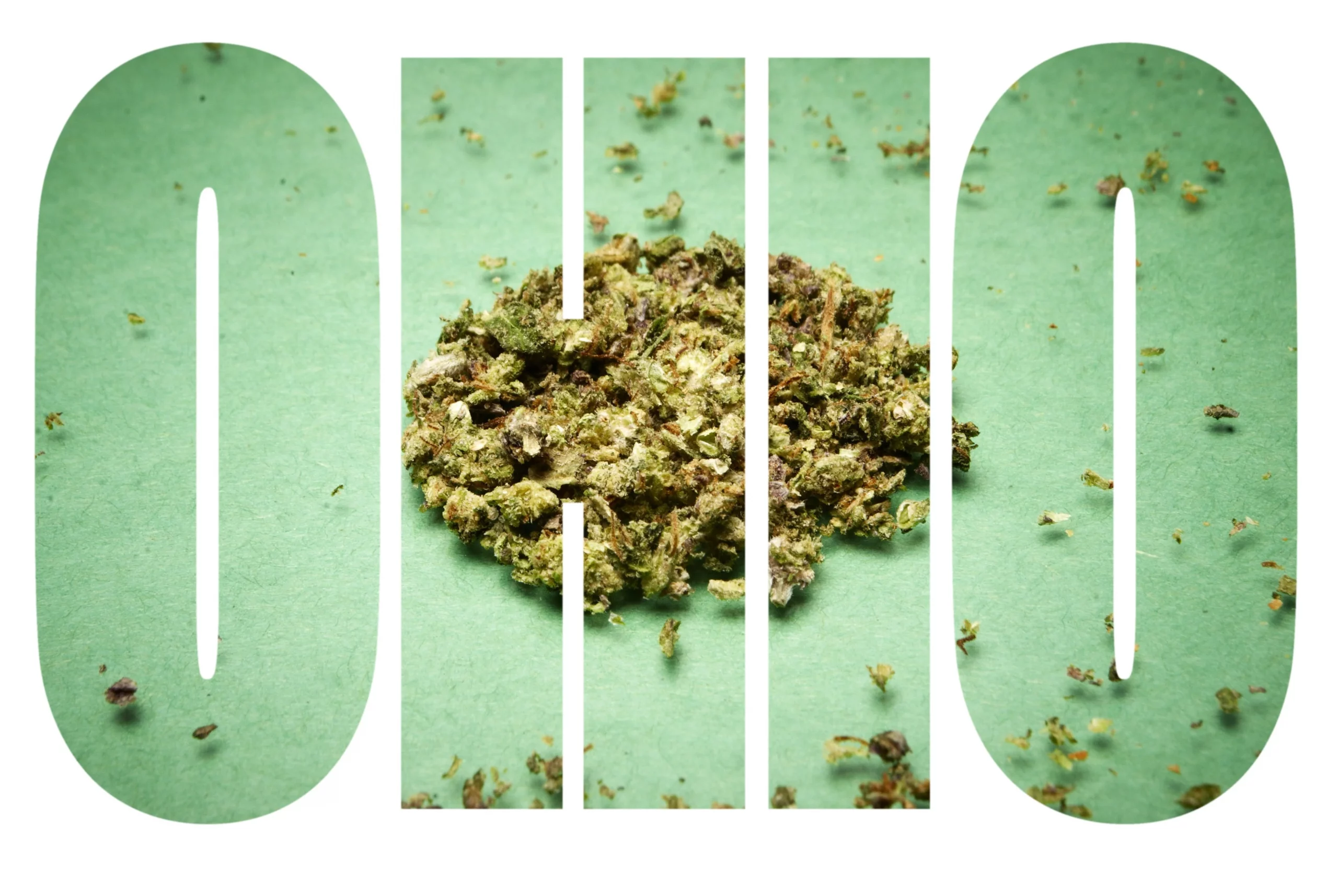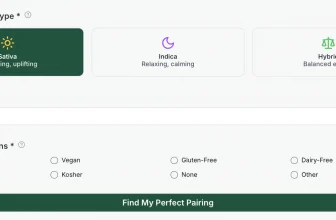
Is Marijuana legal in Ohio? In Ohio, medicinal weed is legal and recreational marijuana is illegal but decriminalized. Below we’ll go into all the details of Ohio’s laws on cannabis, including potential new laws that could be passed in the near future.
Adult-Use Recreational Weed Laws in Ohio
Recreational weed is illegal in Ohio, which means you are not allowed to purchase, use, sell, or possess any amount of non-medicinal marijuana. However, there is hope for the future.
Cannabis activists have recently collected sufficient signatures to force a conversation on legalizing recreational cannabis in the Ohio state legislature. A potential bill would legalize up to 2.5 oz. of marijuana among adults 21 years and older, or 15 grams of concentrate. The bill would also make it legal to grow six plants at home.
The bill will face opposition from Republican legislators.
Penalties for Weed in Ohio
Interestingly, Ohio is still behind the curve on weed legalization despite having decriminalized it in the 1970s.
Under Ohio law, you will face a maximum fine of $150 and a misdemeanor charge for ≤100 grams of marijuana. Possessing between 100 and 200 grams can result in a fine of up to $250 as well as a month in prison, though it is still a misdemeanor.
Medical Marijuana Laws in Ohio
Marijuana is legal in Ohio when used, possessed, sold, produced, and distributed for state-approved medical purposes. This advancement came with the passage of House Bill 523 in August of 2016.
Under this bill, patients must have a qualifying condition to possess a state medical marijuana card. Such a card allows them to purchase limited amounts of marijuana produced in state-operated facilities and testing labs. The state runs all parts of the process, from physician certifications to dispensaries.
The list of qualifying medical conditions, according to the State Medical Board of Ohio, is as follows:
- Amyotrophic Lateral Sclerosis (ALS)
- Alzheimer’s Disease
- AIDS
- Cachexia, Wasting Syndrome
- Cancer
- Chronic Pain (Severe/Intractable)
- Crohn’s Disease
- Chronic Traumatic Encephalopathy (CTE)
- Epilepsy (Seizures)
- Fibromyalgia
- Glaucoma
- HIV
- Hepatitis C
- Huntington’s Disease
- Inflammatory Bowel Disease (IBD)
- Multiple Sclerosis
- Parkinson’s Disease
- Post Traumatic Stress Disorder (PTSD)
- Sickle Cell Anemia
- Spasticity
- Spinal Cord Injury
- Terminal Illness
- Tourette Syndrome
- Traumatic Brain Injury (TBI)
- Ulcerative Colitis
Though House Bill 523 passed in 2016, the first dispensaries did not open until early 2018. Ohio currently has over 60 dispensaries in operation, although patients are only allowed to purchase certain amounts.
The daily limits for medical cannabis patients are as follows:
- 1 oz. (2.83 g) of dried cannabis flower
- 295 mg of THC in the form of lotions, ointments, or patches
- 100 mg of THC in the form of edibles, capsules, tinctures, etc.
- 590 mg of THC in the form of oil or vape juice
Medical cannabis users can also possess a 90-day supply of cannabis subject to the following limits:
- Tier 1: ≤8 oz. of dried cannabis flower
- Tier 2: ≤5.3 oz. of dried cannabis flower
- ≤26.55 g of THC in the form of lotions, ointments, or patches
- ≤9.9 g of THC in the form of edibles, capsules, tinctures, etc.
- ≤53.1 g of THC in the form of oil or vape juice
Those with a terminal illness are subject to the following 90-day limits for cannabis possession:
- Tier 1: ≤10 oz. of dried cannabis flower
- Tier 2: ≤6.6 oz. of dried cannabis flower
- ≤33.3 g of THC in the form of lotions, ointments, or patches
- ≤9.9 g of THC in the form of edibles, capsules, or tinctures
- ≤11.7 g of THC in the form of oil
Summary
Registered patients with a valid state card and a qualifying health condition can purchase medical marijuana in Ohio, though it is limited to certain amounts depending on whether it is for daily or 90-day use.
Recreational marijuana is illegal but decriminalized, with amounts ≤200 grams subject to a misdemeanor charge, up to $250 in fines, and up to 30 days in prison.
It is currently illegal to grow your own marijuana in Ohio. However, state-run facilities can grow and distribute to other licensed entities.
There is reason for optimism since activists and legislators alike are working to make recreational marijuana legal on the state level.






